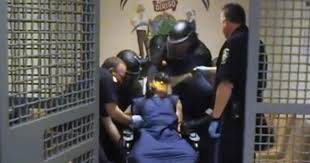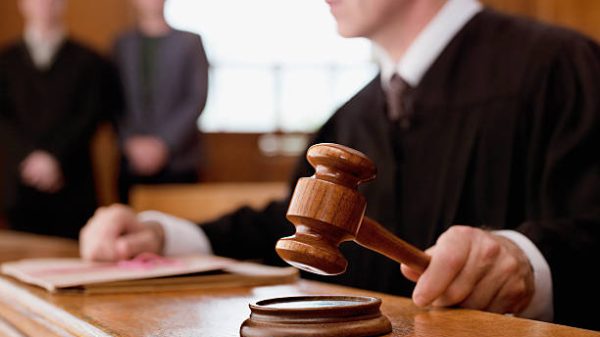Montgomery, AL – An Alabama sheriff’s deputy has agreed to plead guilty to assault charges after being accused of physically assaulting a man experiencing a mental health crisis, leading to the man’s death while in jail. The incident, which occurred in 2022, has sparked outrage and renewed discussions on the treatment of individuals in mental health crises within the U.S. criminal justice system.
The Incident: A Tragic Death in Custody
The incident began when John Doe, a 36-year-old man, was arrested and placed in the Montgomery County Jail after a 911 call about a possible mental health emergency. According to reports, Doe was acting erratically, and officers responded to the scene, apprehending him for a variety of charges. He was then transported to the local jail for further processing.
While in jail, it is alleged that Deputy William Reynolds used excessive force on Doe while attempting to restrain him. Surveillance footage from the jail showed Reynolds repeatedly striking Doe while he was handcuffed and not resisting. Doe, who was reportedly suffering from a mental health crisis, later collapsed and was found unresponsive in his cell.
Despite attempts to resuscitate him, Doe was pronounced dead later that day. An autopsy confirmed that the cause of death was a combination of injuries sustained from the assault and complications from his mental health condition. The case was immediately referred to the authorities for investigation, leading to the deputy’s charges.
The Plea Deal: Accountability for Actions
After months of legal proceedings, Reynolds has agreed to plead guilty to one count of third-degree assault, a misdemeanor charge. The guilty plea is part of a plea agreement that will avoid a trial, but Reynolds is still expected to face jail time, along with probation and a fine. The case will also likely result in disciplinary action within the sheriff’s department, though the exact consequences are still pending.
This guilty plea is seen as a significant moment of accountability, especially considering the broader context of law enforcement’s treatment of individuals in mental health crises. Many advocates for police reform and mental health awareness have hailed the decision as a step forward in ensuring that officers are held accountable for their actions.
“We can never allow this kind of violence to be swept under the rug, especially when someone is at their most vulnerable,” said Sarah Williams, a local advocate for mental health reform. “This case highlights the need for better training and de-escalation tactics for law enforcement officers who encounter people in mental health crises.”
The Broader Conversation: Mental Health and Law Enforcement
The case has reignited calls for greater reform in the way law enforcement handles individuals experiencing mental health crises. Studies have shown that people with mental health disorders are disproportionately impacted by the criminal justice system, with many ending up incarcerated without receiving the appropriate care.
In response to this, many advocacy groups are pushing for additional training for police officers on how to interact with individuals who may be experiencing a mental health emergency. They are also advocating for improved access to mental health services, both inside and outside the jail system, to ensure that those who need help are not subjected to violence or mistreatment.
“We need a system that prioritizes treatment over punishment,” said John Harrison, a criminal justice reform advocate. “When someone is in the middle of a mental health crisis, the focus should be on care and support, not force.”
What’s Next for Deputy Reynolds?
Though Reynolds will avoid a trial, the case has brought national attention to the issue of police use of force and its disproportionate impact on vulnerable populations, especially those dealing with mental health challenges. The plea deal may offer some justice for the family of John Doe, but many activists say it underscores the need for systemic change to prevent future tragedies.
Reynolds is expected to be sentenced in the coming weeks, and the community is awaiting the judge’s ruling. However, some are already calling for greater reforms and oversight of law enforcement practices, particularly in how officers engage with individuals experiencing mental health crises.
A Community in Grief
The death of John Doe has left his family and the local community devastated. Advocates have rallied around the family, urging for further reforms in policing practices and better protection for individuals experiencing mental health emergencies.
The case highlights the ongoing challenges faced by the U.S. criminal justice system in addressing mental health and the treatment of vulnerable populations. As the sentencing of Deputy Reynolds draws near, many are hoping it will prompt broader conversations and ultimately lead to meaningful change.











